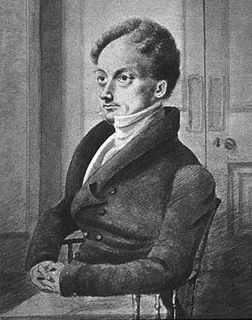A Quote by Lucretius
First, then, I say, that the mind, which we often call the intellect, in which is placed the conduct and government of life, is not less an integral part of man himself, than the hand, and foot, and eyes, are portions of the whole animal.
Related Quotes
The church isn't simply a collection of isolated individuals ... we need to learn again the lesson that a hand is no less a hand for being part of a larger whole, an entire body. The foot is not diminished in its freedom to be a foot by being part of a body which also contains eyes and ears. In fact, hands and feet are most free to be themselves when they coordinate properly with eyes, ears, and everything else. Cutting them off in an effort to make them truly free, truly themselves, would be truly disastrous.
And since the mind is of a man one part,
Which in one fixed place remains, like ears,
And eyes, and every sense which pilots life;
And just as hand, or eye, or nose, apart,
Severed from us, can neither feel nor be,
But in the least of time is left to rot,
Thus mind alone can never be, without
The body and the man himself, which seems,
As 'twere the vessel of the same- or aught
Whate'er thou'lt feign as yet more closely joined:
Since body cleaves to mind by surest bonds.
If I had to describe my remarks this evening frankly as if I were in police court and on oath, so to speak I should have to call it a ramble over several subjects, portions of which may seem to you to be impudent, and portions of which will be ignorant, and portions of which may contrive to be both at once.
All the lies and evasions by which man has nourished himself civilization, in a word is the fruits of the creative artist. It is the creative nature of man which has refused to let him lapse back into that unconscious unity with life which characterizes the animal world from which he made his escape.
Can anything be imagined so ridiculous that this miserable and wretched creature, who is not so much as master of himself, but subject to the injuries of all things, should call himself master and emperor of the world, of which he has not power to know the least part, much less to command the whole?
The very problem of mind and body suggests division; I do not know of anything so disastrously affected by the habit of division as this particular theme. In its discussion are reflected the splitting off from each other of religion, morals and science; the divorce of philosophy from science and of both from the arts of conduct. The evils which we suffer in education, in religion, in the materialism of business and the aloofness of "intellectuals" from life, in the whole separation of knowledge and practice -- all testify to the necessity of seeing mind-body as an integral whole.
They that are discontented under monarchy, call it tyranny; and they that are displeased with aristocracy, call it oligarchy: so also, they which find themselves grieved under a democracy, call it anarchy, which signifies the want of government; and yet I think no man believes, that want of government, is any new kind of government.
In the drawing room [of the Queen's palace] hung a Venus and Cupid by Michaelangelo, in which, instead of a bit of drapery, the painter has placed Cupid's foot between Venus's thighs. Queen Caroline asked General Guise, an old connoisseur, if it was not a very fine piece? He replied "Madam, the painter was a fool, for he has placed the foot where the hand should be.
Yet man does recognise himself [as an animal]. But I ask you and the whole world for a generic differentia between man and ape which conforms to the principles of natural history, I certainly know of none... If I were to call man ape or vice versa, I should bring down all the theologians on my head. But perhaps I should still do it according to the rules of science.
The old and oft-repeated proposition "Totum est majus sua parte" [the whole is larger than the part] may be applied without proof only in the case of entities that are based upon whole and part; then and only then is it an undeniable consequence of the concepts "totum" and "pars". Unfortunately, however, this "axiom" is used innumerably often without any basis and in neglect of the necessary distinction between "reality" and "quantity", on the one hand, and "number" and "set", on the other, precisely in the sense in which it is generally false.
One of the unfortunate consequences of the intellectualization of man's spiritual life was that the word "spirit" was lost and replaced by mind or intellect, and that the element of vitality which is present in "spirit" was separated and interpreted as an independent biological force. Man was divided into a bloodless intellect and a meaningless vitality. The middle ground between them, the spiritual soul, in which vitality and intentionality are united, was dropped.
Whenever the powers of government are placed in any hands other than those of the community, whether those of one man, of a few, or of several, those principles of human nature which imply that government is at all necessary, imply that those persons will make use of them to defeat the very end for which government exists.
It is an occult law moreover, that no man can rise superior to his individual failings without lifting, be it ever so little, the whole body of which he is an integral part. In the same way no one can sin, nor suffer the effects of sin, alone. In reality, there is no such thing as 'separateness' and the nearest approach to that selfish state which the laws of life permit is in the intent or motive.






































